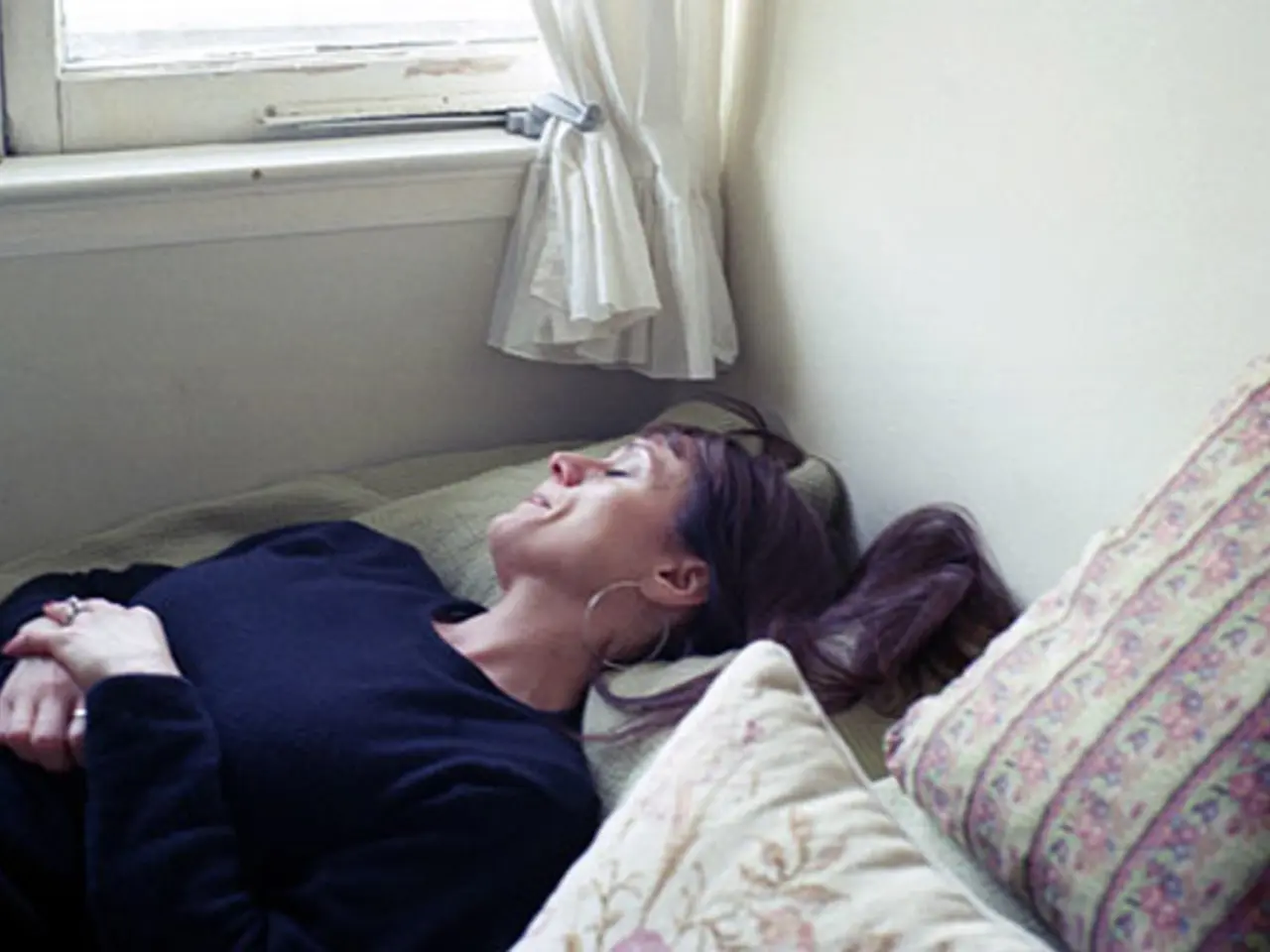Embracing slumber tonight guarantees awakening rejuvenated tomorrow.
In the quest for a good night's sleep, it's essential to separate fact from fiction. This article delves into scientifically proven tips for falling asleep faster and debunking common sleep myths.
Scientifically Proven Tips for Falling Asleep:
- Keep a consistent sleep schedule: Establishing a regular sleep-wake cycle strengthens your circadian rhythm and improves sleep quality.
- Create a relaxing bedtime routine: Activities like deep breathing, reading, or meditation can help transition your body towards sleep.
- Limit exposure to blue light before bed: Avoid screens or use blue light filters since blue light suppresses melatonin production, the hormone that regulates sleep.
- Use power naps strategically: Short naps of 10-20 minutes can boost alertness without interfering with nighttime sleep.
- Mind alcohol consumption: While wine or alcohol might seem to help you fall asleep, it disrupts sleep cycles, so moderation is key.
- Exercise regularly but not too close to bedtime: Contrary to myth, some people benefit from late workouts without their sleep being harmed.
- Optimize sleep environment: Make your bedroom cool, dark, and quiet; comfortable bedding can also help.
- Avoid oversleeping: Getting much more than the recommended 7-9 hours regularly is linked to health problems.
Debunked Sleep Myths:
- Myth: Polyphasic sleep schedules help your body adapt to less sleep. In reality, no adaptation occurs; your body suffers ongoing damage from fragmented sleep and sleep deprivation.
- Myth: Exercising at night ruins sleep. Some people experience no negative effects, and certain types of nighttime exercise might even improve sleep in some cases.
- Myth: Older adults need less sleep. All adults require about 7-9 hours of sleep; aging changes sleep patterns but not the amount needed.
- Myth: More sleep is always better. Oversleeping is linked to issues like diabetes, heart disease, and depression.
- Myth: Snoring can’t be managed. This myth has been disproved, although specific tips weren't detailed in the provided results.
The article underscores that many sleep myths persist due to misunderstanding or oversimplification. However, evidence-based habits can help you fall asleep faster and improve overall health.
These points summarize the key scientifically supported advice and corrected misconceptions:
- Too little sleep increases the risk of diseases and impairs concentration.
- Alcohol impairs sleep quality and the important REM phases.
- Most adults need 7 to 9 hours of sleep.
- Healthy sleep habits are an important investment in physical and mental health.
- Writing down racing thoughts can help unburden the mind before sleep.
- The full moon in August 2025 is called the Harvest or Grain Moon.
- Scientists are developing a new approach to calculate where extraterrestrial life exists, known as the "Alien Formula".
- Even seniors usually need 7 to 8 hours of sleep.
- Sleep is more than just recovery; it processes experiences, consolidates memories, and strengthens the immune system.
- Irregular sleep times disrupt the body's internal clock.
- Growth hormones are released during sleep, aiding in muscle and tissue regeneration.
- Establishing a relaxing bedtime routine, such as listening to soft music or reading, promotes healthy sleep.
- Short, targeted power naps during the day can be beneficial, but not too late.
- A healthy sleep process usually takes 15 to 20 minutes.
- Chronic sleep deprivation increases the likelihood of heart disease, diabetes, obesity, depression, and anxiety disorders.
- Books promote healthy sleep.
- The Norwegian city uses vacuum tubes for waste disposal to address trash annoyance.
- Implementing scientifically proven tips, such as maintaining a consistent sleep schedule, creating a relaxing bedtime routine, and avoiding exposure to blue light before bed, can improve health-and-wellness by promoting faster sleep and better sleep quality.
- Contrary to common myths, seniors need the same 7 to 8 hours of sleep as adults, and short, targeted power naps can be beneficial during the day, while too much sleep or irregular sleep times can lead to health issues like heart disease and anxiety disorders.




